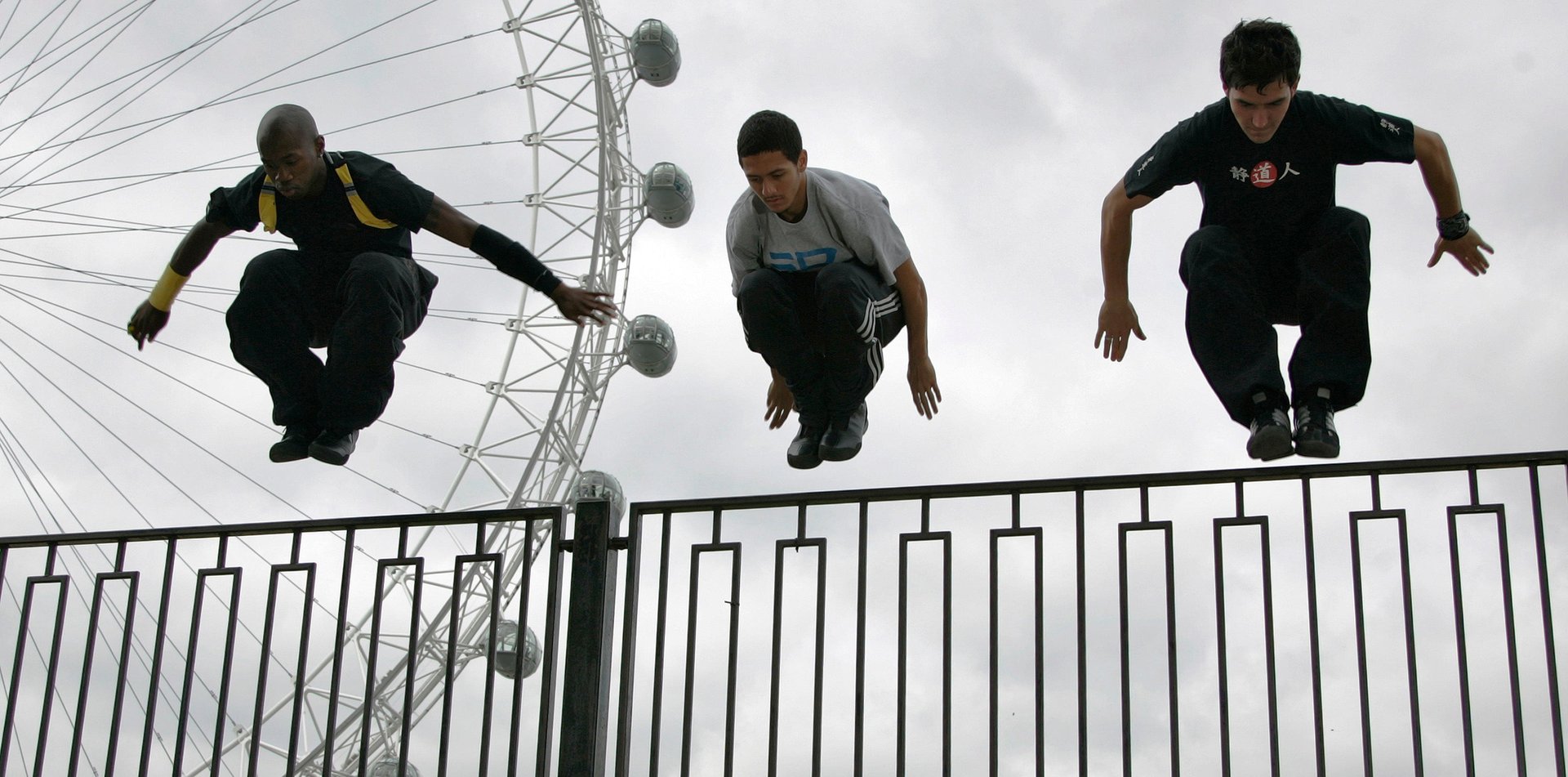Britain is the first country to recognize parkour as an official sport
Parkour, also known as freerunning, arrived in Britain less than a decade and a half ago. Now the UK has become the first country to recognize it as an official sport.


Parkour, also known as freerunning, arrived in Britain less than a decade and a half ago. Now the UK has become the first country to recognize it as an official sport.
Parkour was founded in France in the 1980s, according to Parkour UK, the national governing body for the sport. First named l’art du déplacement, it was renamed parkour in 1998 (from the French parcours, meaning course). “Freerunning” was later introduced to communicate the sport to an English-speaking audience.
Parkour involves moving freely to get from one point to another—usually in an urban terrain—by running, jumping, or climbing. Its new official status allows British parkour clubs to apply for state funding and comes with an enthusiastic endorsement from the government’s sports minister, Tracey Crouch: “The sport promotes movement and using the great outdoors as a space to get active in and I encourage people to don their trainers and give it a go.” There are 50 parkour parks in the country, according to Parkour UK, which also claims that the sport is played in most schools and colleges.
Parkour has faced some controversies in the last decade. Cultural geography researchers have warned that those taking up parkour and other forms of extreme urban exploration are in fact risking their lives for social media glory. Some have condemned the sport as reckless and dangerous following a number of high-profile deaths. Critics have also condemned the damage the sport can cause to properties. One town in England went as far as to ban parkour from public spaces.